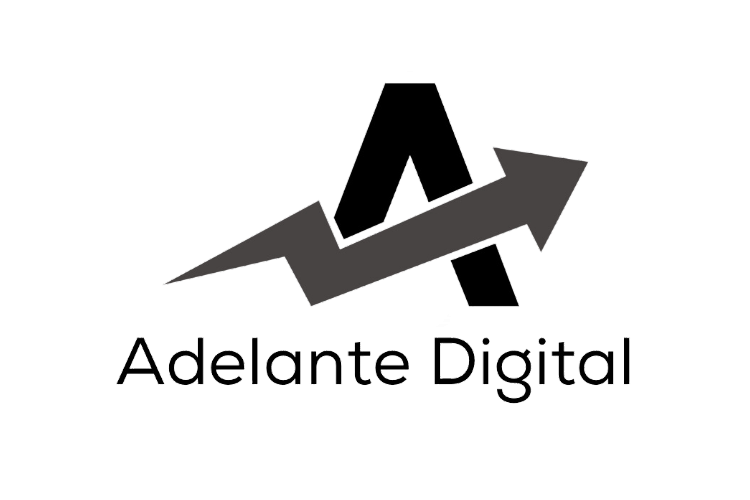Understanding AI Overviews
Google's Gemini AI Overviews represent a fundamental shift in how search results are presented. Instead of just a list of links, users often see direct, AI-generated summaries at the top of the page. This section explores what AI Overviews are, their key components, and how they differ from traditional search features, helping you grasp the new landscape.
AI Overviews vs. Traditional Search
AI Overviews synthesize information from multiple sources to provide direct answers, while traditional search primarily directs users to web pages. Explore the key differences:
🤖 AI Overview
- Position: Top of SERP (Position Zero)
- Content: Generative AI summary from multiple sources
- Interaction: Direct answer, conversational follow-ups
- Purpose: Synthesize complex info, reduce user effort
- Sources: Multiple linked sources
- Visuals: Can include images, videos
- CTR Impact: Potentially lower for source websites
🔗 Traditional Organic Link
- Position: Below AI Overview / Featured Snippets
- Content: Link to a web page
- Interaction: Click to web page for content
- Purpose: Direct user to source content
- Sources: The link itself is the source indicator
- Visuals: Varies by linked page
- CTR Impact: Historically primary click driver
Prevalence of AI Overviews
AI Overviews appear more frequently for certain types of queries. While a precise, universally agreed-upon percentage is hard to pin down and constantly evolving, studies suggest a higher prevalence for informational queries compared to commercial ones.
Illustrative data: AI Overviews may appear for ~59% of informational queries versus ~19% for commercial queries (note: these figures are indicative and subject to change based on ongoing research and Google's algorithm updates).
Key Insights on AI Overviews
The Source Paradox: Being Cited vs. Being Trained On
Content doesn't need to be in the AI's initial training data to be cited. Instead, it must best match the AI-generated answer for the user's intent, pulled dynamically from Google's live index. Focus on high-quality, relevant content that supports potential AI answers.
Blurring Lines: Informational & Commercial Intent
AI Overviews can seamlessly blend informational answers with commercial suggestions (e.g., recommending a product after explaining a process). Businesses need an integrated content strategy addressing the full user journey, from research to purchase.
AI Overviews & Business Recommendations
A critical question for businesses is whether AI Overviews will explicitly name them. This section explores how AI Overviews handle direct business recommendations, illustrated through case studies for different types of local and specialized service queries. Understanding these patterns is key to positioning your business effectively.
Do AI Overviews Name Specific Businesses?
Yes, in many cases.
AI Overviews can and do recommend specific businesses, especially for local service and "best of" queries. However, the approach varies, particularly for sensitive "Your Money Your Life" (YMYL) topics.
Case Studies: How AI Recommends
Local Services: "Best Plumber Near Me"
For urgent, local needs (e.g., "burst pipe downtown Seattle"), AI aims to directly suggest 1-2 highly-rated emergency plumbers with confirmed service in the area.
Click to see criteria
Key Criteria: Strong E-E-A-T (Experience, Expertise, Authoritativeness, Trustworthiness), positive & detailed reviews, consistent NAP data, clear service offerings (e.g., 24/7 emergency), optimized Google Business Profile, content answering natural language queries (e.g., "how to fix a running toilet").
"Best Of" Queries: "Best Pho in Detroit"
AI synthesizes recommendations from user-generated content (Reddit, Yelp, etc.) and explicitly lists specific restaurant names based on collective sentiment.
Click to see criteria
Key Criteria: Positive sentiment in reviews/forums, specific qualitative details mentioned (e.g., "best broth," "great vegetarian pho"), strong presence on review platforms, optimized Google Business Profile, detailed customer reviews highlighting key attributes.
Specialized (YMYL): "Financial Advisor for Military"
For sensitive YMYL topics, AI is more cautious. It prioritizes highly authoritative sources and may summarize criteria or list reputable entities rather than a single direct recommendation.
Click to see criteria
Key Criteria: Exceptional E-E-A-T, verifiable credentials, compliance history, positive client reviews (compliant), focused content addressing specific niche needs (e.g., "VA loan guidance"), clear demonstration of expertise in the specialized area. AI avoids "harmful factual inaccuracies."
Key Insights on Business Recommendations
Algorithmic Consensus for "Best Of"
AI forms a "consensus" for "best of" queries by analyzing data from multiple user-generated sources (Reddit, Yelp). It's not just star ratings; detailed, qualitative feedback matters. Cultivate a diverse, rich review profile.
AI's Cautionary Principle for YMYL
For "Your Money Your Life" topics (finance, health, legal), AI is highly cautious due to the risk of harm. It favors established, authoritative sources and may offer guidance or list multiple reputable options rather than a single endorsement. Exceptional E-E-A-T is non-negotiable.
Getting Visible in AI Overviews
Achieving visibility in AI Overviews goes beyond traditional SEO. It requires a holistic approach focusing on quality, authority, technical soundness, and a deep understanding of user intent. This section breaks down the key criteria and optimization strategies your business needs to implement.
🌟 E-E-A-T Foundation
Experience, Expertise, Authoritativeness, Trustworthiness. This is paramount.
Experience: Demonstrable firsthand knowledge, industry presence.
Expertise: Unique, insightful content from skilled individuals/orgs.
Authoritativeness: Recognition as a leader; expert bios, case studies.
Trustworthiness: Accuracy, reliability, security (HTTPS), clear policies.
✍️ Content Optimization
Make your content AI-readable and user-friendly.
Clarity & Conciseness: Natural language, no fluff, short paragraphs.
Structured Content: Descriptive headings (H1-H4), bullet/numbered lists.
FAQs & Q&A: Answer common questions directly (40-60 words ideal).
Schema Markup: Use for local business, products, FAQs to help AI understand.
📍 Local SEO & Reputation
Critical for local businesses and service providers.
Consistent NAP: Name, Address, Phone identical everywhere.
Optimized GBP: Complete profile, photos, attributes, Google Posts.
Positive Reviews: High volume, detailed, positive reviews on multiple platforms.
Third-Party Directories: Strong presence on Yelp, TripAdvisor, etc.
🗣️ User Intent & Conversational Queries
Align with how people naturally ask questions.
Optimize for long-tail, conversational queries.
Create locally relevant content answering pre-purchase questions.
Analyze "People Also Ask" and "Related Searches" for content ideas.
⚙️ Technical SEO Foundations
Ensure your site is accessible and performs well.
Page Speed: Target <2 seconds load time.
Mobile-Friendly: Essential for mobile-first indexing.
Crawlability: Easy for Google to index; avoid paywalls/intrusive pop-ups.
Core Web Vitals: Pass LCP, FID, CLS.
🌍 Proximity vs. Relevance
Location's role is evolving in AI Overviews.
AI Overviews currently place less emphasis on strict distance than traditional local packs.
However, proximity can still be a factor, especially for urgent or highly local queries.
Content quality and authority are becoming primary drivers, but geographic relevance still matters.
Key Insights on Achieving Visibility
The Holistic Digital Footprint
AI aggregates signals from across the web (NAP consistency, reviews on various platforms, directory presence). A cohesive, positive digital footprint on ALL relevant platforms is now a critical ranking factor, not just your own website or GBP.
The Conversational Content Imperative
Google is shifting "From Keywords to Conversations." Content must anticipate and directly answer natural language questions users ask throughout their decision-making. FAQs and Q&A formats are highly valuable.
Impact on Businesses & Future Outlook
AI Overviews are not just a new feature; they represent a significant change with tangible impacts on website traffic, user behavior, and competitive dynamics. This section discusses these implications and outlines strategic adaptations for businesses to navigate this evolving landscape.
AI Overviews can lead to "zero-click" searches, where users get answers directly on the SERP, potentially reducing direct website visits. Traditional informational content marketing aimed at driving traffic may be less effective. The focus shifts to being *cited* within the AI Overview itself. This becomes a critical touchpoint for visibility and initial discovery.
Users may encounter different results across AI Overviews, the traditional Local Pack, and AI Mode. AI Overviews might prioritize "contextual relevance" or "editorial flavor" (e.g., forum reputation, Yelp popularity) over the Local Pack's proximity/relevance/prominence signals. This creates complexity in optimizing for consistent visibility.
Generative AI is experimental; Google includes disclaimers. LLMs can produce errors or reflect limited viewpoints. Google has strict policies to avoid harmful inaccuracies, especially for YMYL topics (health, safety, finance), leading to more cautious recommendations in these areas. The AI landscape is rapidly evolving, requiring agile adaptation.
Key Strategic Insights
The Authority Paradox in a Fragmented SERP
A business might be authoritative in one view (e.g., AI Overview citing forum mentions) but not another (e.g., traditional Local Pack). This necessitates optimizing for multiple, potentially inconsistent signals and monitoring appearance across different interfaces.
The Ethical Imperative of AI Optimization
Google's AI emphasizes preventing harmful inaccuracies and detecting spam. Businesses MUST use "white-hat" SEO and prioritize genuine value. Ethical conduct, verifiable claims, and transparency are essential for AI visibility, especially in sensitive YMYL industries.
Your Action Plan for AI Overviews
Google's AI Overviews are reshaping search. To thrive, businesses must adapt proactively. This section outlines key actionable recommendations to enhance your visibility and effectively navigate this new AI-powered landscape. These steps are crucial for being seen, cited, and chosen.
- Fortify E-E-A-T as a Core Principle: Invest in demonstrating genuine experience, verifiable expertise, industry authoritativeness, and unwavering trustworthiness across all online assets. Publish original, high-quality content by credible experts.
- Master Local SEO Beyond Traditional Tactics: Ensure absolute NAP consistency. Aggressively encourage detailed, positive reviews on Google Business Profile, Yelp, TripAdvisor, and niche sites.
- Adopt a "Conversational Content" Strategy: Create content that directly answers natural language questions. Use FAQs, Q&A sections, and topic clusters addressing nuanced user intent.
- Embrace Structured Data (Schema Markup) Holistically: Implement relevant schema (LocalBusiness, Product, FAQPage) to help AI precisely understand your offerings.
- Prioritize Technical SEO Foundations: Maintain a fast, mobile-friendly, easily crawlable website. Remove barriers like intrusive pop-ups or paywalls.
- Monitor and Adapt Continuously: Track your appearance in AI Overviews vs. traditional results. Be prepared for a fragmented landscape and stay agile as AI evolves.
- Cultivate a Holistic Digital Footprint: Recognize AI draws from diverse sources. A consistent, positive, authoritative presence across your website, GBP, social media, and third-party review sites is vital.
- Emphasize Unique Local Selling Points: Differentiate your business from generic AI answers by highlighting what makes you unique in your local market.





